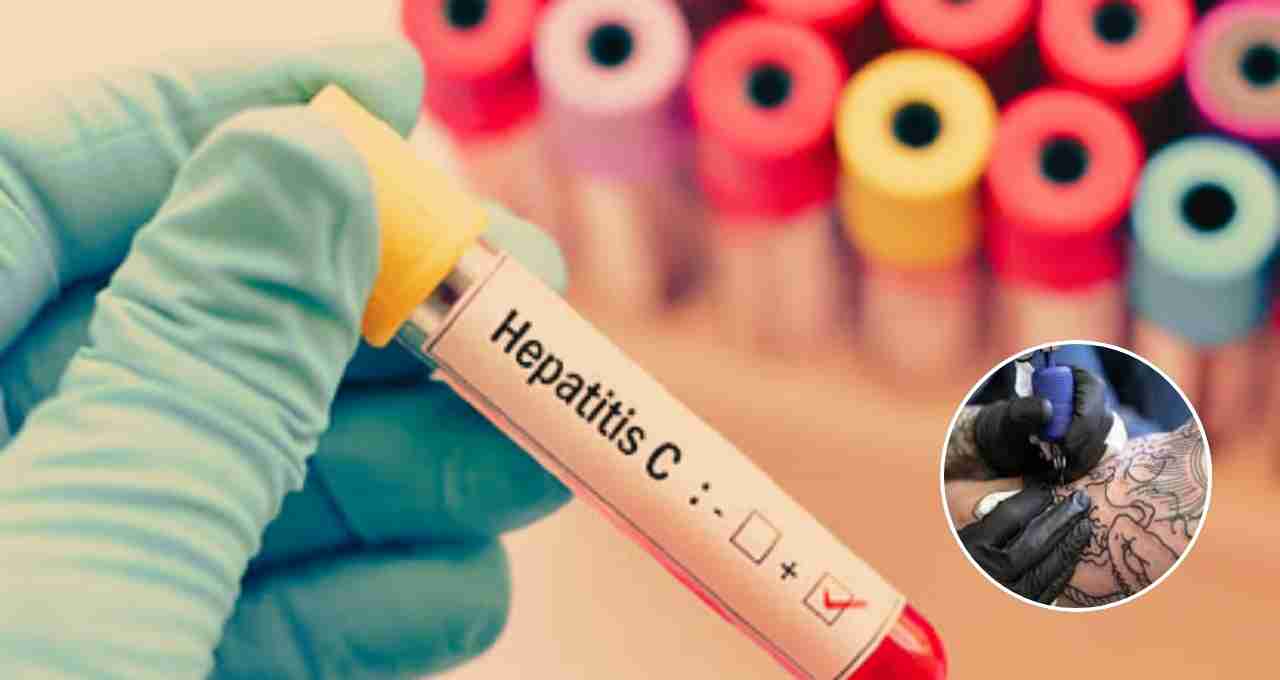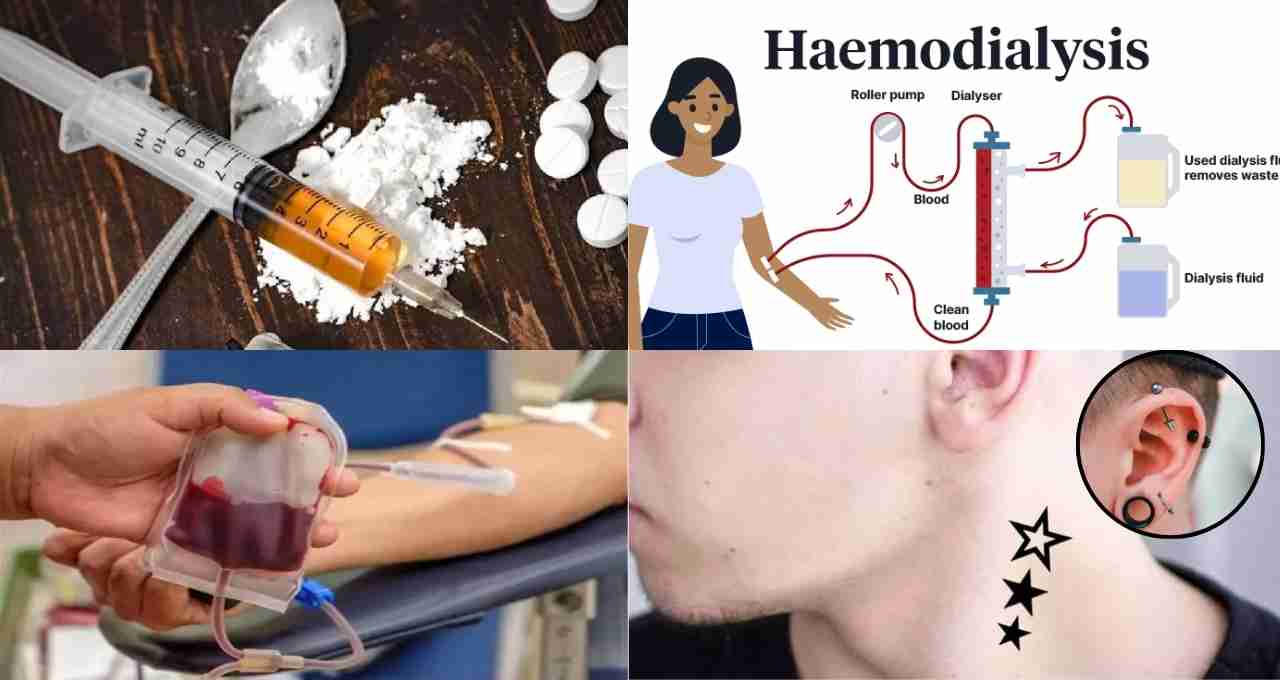Getting a tattoo can pose a risk of Hepatitis C, especially if needles or equipment are not properly used. If left untreated, it can cause liver damage. Adherence to safety precautions is crucial.
Getting a tattoo has become a fashion trend today. But are you aware that if proper precautions are not taken while getting a tattoo, you could contract a serious infection like Hepatitis C? In fact, tattooing involves injecting ink into the dermis layer of the skin. If the needles or other equipment are not clean or are reused, dangerous diseases can spread through infected blood.
What is the Hepatitis C Virus (HCV)?
The Hepatitis C virus (HCV) is a virus that spreads through human blood and directly affects the liver. When this virus enters the body, it gradually begins to damage the liver. If left untreated, this disease can lead to serious problems such as liver cirrhosis (scarring of the liver), liver cancer, and even liver failure.
The Hepatitis C virus usually spreads when a person comes into direct contact with infected blood. If the needles, ink, or equipment used while getting a tattoo are not properly cleaned or sanitized, the risk of the virus entering the body increases significantly. Therefore, it is extremely important to pay attention to hygiene when getting a tattoo.
Is Hepatitis C only caused by getting a tattoo?
Hepatitis C is not caused solely by getting a tattoo. This virus can spread in several other ways. Sharing a used razor or toothbrush with another person can also pose a risk of infection. Furthermore, engaging in unprotected sexual activity with an infected person can also lead to the spread of Hepatitis C, although the risk of infection through this method is lower.
The risk is higher when getting a tattoo because this process involves injecting ink into the skin using a needle. If the needle or equipment used is not clean or has been previously used on an infected person, the risk of the virus spreading increases manifold. Therefore, it is very important to pay close attention to hygiene and safety when getting a tattoo.
What are the risk factors for Hepatitis C?

Hepatitis C is a serious viral infection that spreads when the blood of a healthy person comes into direct contact with infected blood. There are several major reasons for its spread:
- Injecting drugs: When people share needles and syringes for drug use, the virus can easily spread from one person to another. This is the biggest cause of Hepatitis C spread.
- Unsafe tattoos and piercings: If hygiene is not maintained while getting tattoos or piercings, such as using dirty needles, it can also lead to viral infection.
- Blood transfusion: Before 1992, blood was not screened. At that time, many people were infected with Hepatitis C due to transfusions of infected blood. Today, rigorous testing is done before blood transfusions.
- Hemodialysis: People undergoing long-term dialysis are also at increased risk of Hepatitis C infection because their immune system is weakened, and infection can spread through equipment.
Important things to keep in mind when getting a tattoo
Getting a tattoo has become a fashion these days, but it is important to keep certain things in mind when getting a tattoo to stay safe and avoid any infection.
- Get a tattoo from a licensed tattoo artist: Always get a tattoo from a licensed and experienced tattoo artist before getting a tattoo. Such an artist knows what precautions are necessary in tattooing, and this will reduce your risk.
- Pay attention to hygiene: Before getting a tattoo, make sure that the tattooing place is completely clean and hygienic. All equipment, such as needles, pigments, and machines, should be sterilized. This will reduce the risk of infection.
- Use new and safe needles: Use only new needles and new equipment when getting a tattoo. Reusing needles increases the risk of spreading infection, so it is important that the artist has taken the needle from a sealed package.
- Post-tattoo care is important: It is very important to take care of the tattoo after getting it. To avoid any kind of itching or swelling at the tattoo site, leave it alone for 2 to 3 weeks to heal properly. Also, do not remove the bandage too soon to maintain its protection.
- Contact a doctor if infection symptoms appear: If you experience swelling, pain, or pus after getting a tattoo, consult your doctor immediately. Failure to do so can worsen the infection, which can be dangerous to your health.
Symptoms of Hepatitis C

Hepatitis C (HCV) infection can initially be asymptomatic, making it difficult to detect. However, there are some common symptoms that can give you an idea of this disease:
- Fatigue and weakness – Feeling very tired.
- Muscle and joint pain – Pain in various parts of the body.
- Abdominal pain and nausea – Discomfort in the stomach and feeling of vomiting.
- Loss of appetite – Decreased desire to eat.
- Dark urine – Darkening of urine color.
- Fever – Mild fever.
- Yellowing of skin and eyes (jaundice) – Yellowing of skin and eyes, which is called jaundice.
When should you see a doctor?
If you have recently had a tattoo and experience symptoms such as fatigue, abdominal pain, fever, or yellowing of the skin, contact a doctor immediately. Get an HCV test so that the infection can be detected early and serious problems can be avoided through treatment.














